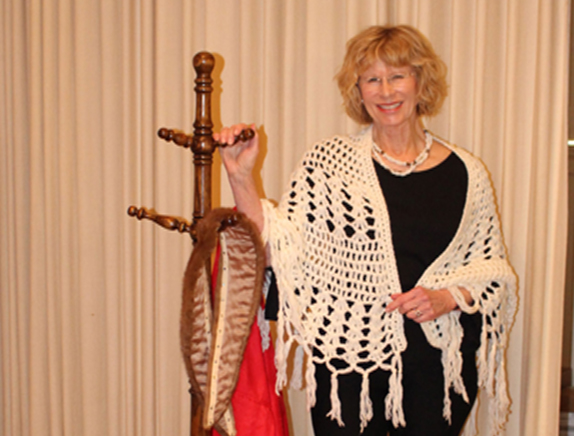Last Sunday, The Alpine Historical Society presented Women Warriors, a one-woman performance written and performed by historian Annette Hubbell.
Among the women portrayed in the play were abolitionist Harriet Beecher Stowe, the author of Uncle Tom’s Cabin, Corrie Ten Boom, who survived her time in the Ravensbruck Concentration Camp in Germany during World War II, and Elizabeth Fry, who worked toward prison reform and criminal justice.
Hubbell describes her production as “the extraordinary stories of some ordinary women who transformed themselves, paved the way for others, and left the world in a better place”.
During her introduction Hubbell said she whittled down this particular selection of women from a list of more than 100 who all influenced the course of history.
She emphasized that she utilized the first-person accounts found in their journals and lettters to construct the text of the production and cited a quote from poet and author Rudyard Kipling: “If history were taught in the form of stories, it would never be forgotten”.
While Hubbell portrays the women as simply telling a portion of their earthly story, the women that Hubbell included in her production all spoke of how they felt as if God had entrusted them to work toward justice within the framework of their individual social status.
It is the stories of these individual women and how they figure into world history that drives the play.
One such woman, Amy Carmichael, served as a missionary in India and focused on safely removing girls as young as age seven from a life of prostitution and forced servitude.
One girl in the audience said that what stood out to her was not the historic information, but the current call to arms for women activists.
“I feel that few people are aware of the worldwide problem with child trafficking. That battle is being fought today,” said Harli Crossman, 14.













